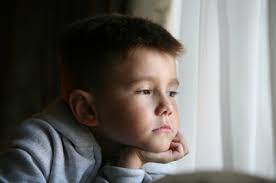Self-destructive thoughts and feelings grow from ripples to tidal waves in people who develop addictions. But how does self-directed aggression become entrenched in our inner worlds, and how can it be dislodged?
Everyone who’s ever been addicted to anything is bound to know two feelings — craving and self-hatred. These feeling states essentially define addiction. They’re coordinates on the map. We more or less understand craving, biologically as well as psychologically. I’ve written about it and so have others. But we don’t understand its infamous partner in crime. How do people come to hate themselves? And why might this feeling be central to addiction?
Self-hate isn’t exclusive to addicts. Almost anyone you talk to about their inner world will admit to a hostile self-critic who blames them, sometimes savagely, for whatever they did that was wrong or stupid. Self-directed aggression spans many cultures. The tradition of seppuku (suicide motivated by shame or guilt) grew up in the warrior classes of ancient Japan. The Catholic Church spread the idea of original sin (leading to repentance) wherever colonialism took hold. Self-nastiness seems to have quite a hold on human civilization. But how does it seed itself in young minds? How does it grow?

 Kids everywhere are notorious for one overarching concern: “I’m gonna get in trouble!” You hear it on the way home from school, when someone’s buddy suggests cutting through the construction site. Or when your friend starts opening drawers in your parents’ bedroom. Or when you lock the dog in the bathroom. There’s only one reason not to try and have some illicit fun. That if you do, and you’re caught, someone is going to get mad at you, which probably means you’re going to get punished.
Kids everywhere are notorious for one overarching concern: “I’m gonna get in trouble!” You hear it on the way home from school, when someone’s buddy suggests cutting through the construction site. Or when your friend starts opening drawers in your parents’ bedroom. Or when you lock the dog in the bathroom. There’s only one reason not to try and have some illicit fun. That if you do, and you’re caught, someone is going to get mad at you, which probably means you’re going to get punished.
Getting in trouble turns the world from bright to grey. It replaces ease and freedom with a sense of doom. So…when your friend or your little sister gets you in trouble, you get pissed off at them. Now look what you did! If that happens repeatedly, you start to avoid them, mistrust them, and dislike them. With friends like that, who needs enemies?
But around the age of four, little kids make several potent discoveries. They begin to understand that other people are defined not only by their behaviours but by the  thoughts, feelings and intentions that generate those behaviours. They realize that other people have private and unique minds, and this discovery is called Theory of Mind. Shortly after that, kids begin to appreciate that they themselves have minds, and that their thoughts, feelings and intentions cause their own behaviours. They start to see “myself” as a human category, comparable to other selves.
thoughts, feelings and intentions that generate those behaviours. They realize that other people have private and unique minds, and this discovery is called Theory of Mind. Shortly after that, kids begin to appreciate that they themselves have minds, and that their thoughts, feelings and intentions cause their own behaviours. They start to see “myself” as a human category, comparable to other selves.
 This universal advance in cognitive development makes the social world a complex place and joins it irrevocably to the internal world. If you’re the kind of person who’s impulsive or defiant, I’d better stay away from you, so I won’t get in trouble. But if I’m that kind of person…then what? I can’t reject myself…or can I?
This universal advance in cognitive development makes the social world a complex place and joins it irrevocably to the internal world. If you’re the kind of person who’s impulsive or defiant, I’d better stay away from you, so I won’t get in trouble. But if I’m that kind of person…then what? I can’t reject myself…or can I?
That’s the crux of it. We start judging and classifying others by age five or six. We start taking needed precautions so they won’t get us in trouble. And we start judging and classifying ourselves around the same age. But we can’t avoid being ourselves, being with ourselves, and we can’t avoid the feelings of desire and defiance that well up in our own minds. So…just as we reject others for being the kinds of people they are, we begin to criticize and reject ourselves for being the kinds of people we are. We can’t delete our inner states — states such as craving — but we sure don’t like it when they get us in trouble.
There are many ways adults get in trouble — saying the wrong thing, at the wrong time, in the wrong tone, looking too long or not long enough at the wrong person. But there is no more surefire way to get in trouble than to take powerful drugs (including alcohol) against the wishes of those around us. Other people reject us when we do these things. Yet somehow some of us continue to do them. And we quickly learn that these behaviours are generated by the very mental states — craving, anxiety, defiance — that define us.
We silently yell, Stop it! Don’t go there! I hate you for doing this to me! I hate you for getting me in trouble! The only glitch is that the person we hate happens to be ourselves. (And in case you didn’t see it coming, these are among the “parts” that IFS tries to identify and soothe.)
 Most everyone is self-critical, to a degree. But addicts raise this human pastime to some kind of art. In all my interactions with addicted clients, in my reflections on my own years of addiction, I find no more lethal volley of self-abuse than the tuned self-denigration addicts level at themselves the morning after. I did it again. I hate myself. And there’s nothing more likely to trigger renewed craving than the sense of assholeness left simmering for the rest of the day.
Most everyone is self-critical, to a degree. But addicts raise this human pastime to some kind of art. In all my interactions with addicted clients, in my reflections on my own years of addiction, I find no more lethal volley of self-abuse than the tuned self-denigration addicts level at themselves the morning after. I did it again. I hate myself. And there’s nothing more likely to trigger renewed craving than the sense of assholeness left simmering for the rest of the day.
So how do we overcome this dark spiral? For healers and humanists of many stripes, self-compassion is what’s needed. Self-compassion breaks through self-hatred, saying “I get what it’s like for you. You’re not so bad!” But self-compassion can feel foreign, and people often need help discovering it. It’s no coincidence that self-compassion is the main message behind many forms of psychotherapy, including ACT, EFT, IFS, and mindfulness-based approaches. Once you get the hang of it, self-compassion starts to extend itself, and that’s a lovely thing. Maybe that’s the reason former addicts often end up in better shape than those who’ve never strayed.




 Kids everywhere are notorious for one overarching concern: “I’m gonna get in trouble!” You hear it on the way home from school, when someone’s buddy suggests cutting through the construction site. Or when your friend starts opening drawers in your parents’ bedroom. Or when you lock the dog in the bathroom. There’s only one reason not to try and have some illicit fun. That if you do, and you’re caught, someone is going to get mad at you, which probably means you’re going to get punished.
Kids everywhere are notorious for one overarching concern: “I’m gonna get in trouble!” You hear it on the way home from school, when someone’s buddy suggests cutting through the construction site. Or when your friend starts opening drawers in your parents’ bedroom. Or when you lock the dog in the bathroom. There’s only one reason not to try and have some illicit fun. That if you do, and you’re caught, someone is going to get mad at you, which probably means you’re going to get punished. thoughts, feelings and intentions that generate those behaviours. They realize that other people have private and unique minds, and this discovery is called
thoughts, feelings and intentions that generate those behaviours. They realize that other people have private and unique minds, and this discovery is called  This universal advance in cognitive development makes the social world a complex place and joins it irrevocably to the internal world. If you’re the kind of person who’s impulsive or defiant, I’d better stay away from you, so I won’t get in trouble. But if I’m that kind of person…then what? I can’t reject myself…or can I?
This universal advance in cognitive development makes the social world a complex place and joins it irrevocably to the internal world. If you’re the kind of person who’s impulsive or defiant, I’d better stay away from you, so I won’t get in trouble. But if I’m that kind of person…then what? I can’t reject myself…or can I? Most everyone is self-critical, to a degree. But addicts raise this human pastime to some kind of art. In all my interactions with addicted clients, in my reflections on my own years of addiction, I find no more lethal volley of self-abuse than the tuned self-denigration addicts level at themselves the morning after. I did it again. I hate myself. And there’s nothing more likely to trigger renewed craving than the sense of assholeness left simmering for the rest of the day.
Most everyone is self-critical, to a degree. But addicts raise this human pastime to some kind of art. In all my interactions with addicted clients, in my reflections on my own years of addiction, I find no more lethal volley of self-abuse than the tuned self-denigration addicts level at themselves the morning after. I did it again. I hate myself. And there’s nothing more likely to trigger renewed craving than the sense of assholeness left simmering for the rest of the day.